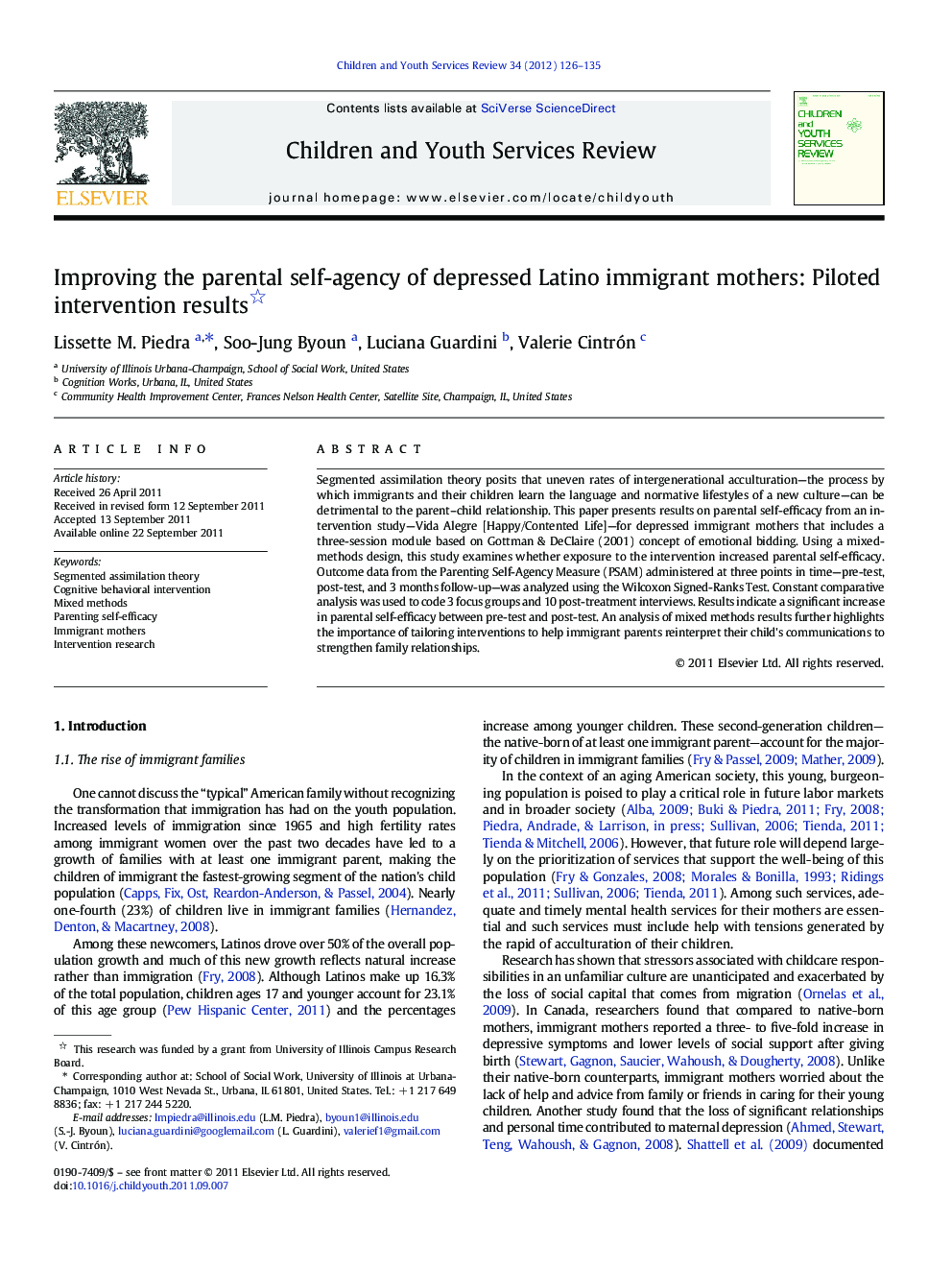| Article ID | Journal | Published Year | Pages | File Type |
|---|---|---|---|---|
| 346719 | Children and Youth Services Review | 2012 | 10 Pages |
Segmented assimilation theory posits that uneven rates of intergenerational acculturation—the process by which immigrants and their children learn the language and normative lifestyles of a new culture—can be detrimental to the parent–child relationship. This paper presents results on parental self-efficacy from an intervention study—Vida Alegre [Happy/Contented Life]—for depressed immigrant mothers that includes a three-session module based on Gottman & DeClaire (2001) concept of emotional bidding. Using a mixed-methods design, this study examines whether exposure to the intervention increased parental self-efficacy. Outcome data from the Parenting Self-Agency Measure (PSAM) administered at three points in time—pre-test, post-test, and 3 months follow-up—was analyzed using the Wilcoxon Signed-Ranks Test. Constant comparative analysis was used to code 3 focus groups and 10 post-treatment interviews. Results indicate a significant increase in parental self-efficacy between pre-test and post-test. An analysis of mixed methods results further highlights the importance of tailoring interventions to help immigrant parents reinterpret their child's communications to strengthen family relationships.
► In this study, we modified a depression intervention for immigrant Latino mothers. ► We used mixed-methods to test its effects on parental self-efficacy (PSE). ► PSAM scores reveal a significant increase in PSE between pre-and post-test. ► Qualitative analyses how tailored interventions help immigrant mothers. ► Immigrant mothers need on-going help understanding their child’s communications.
